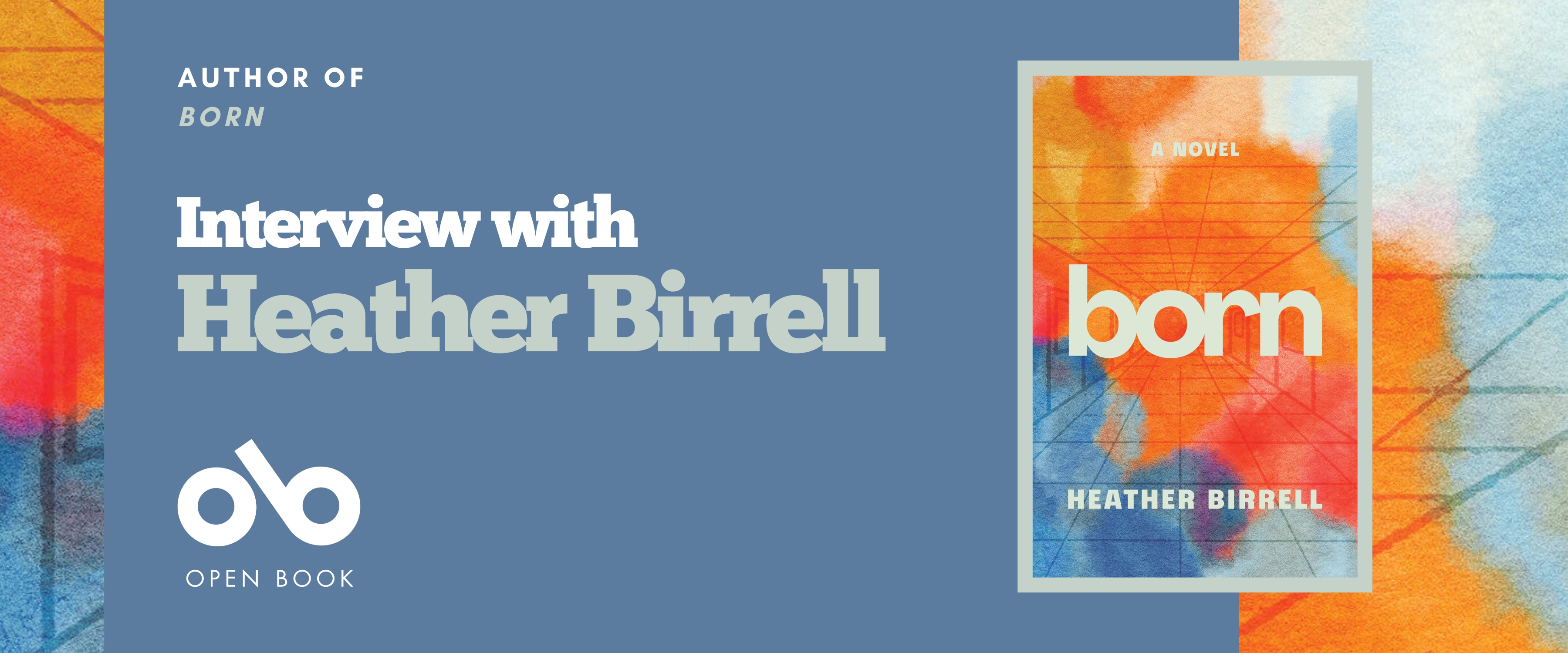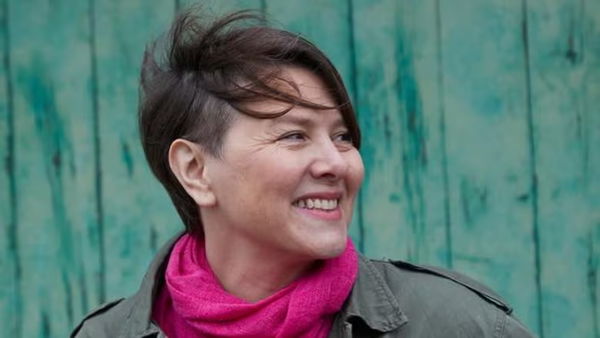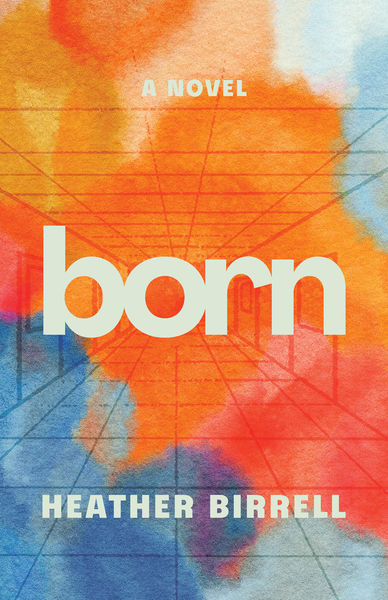A High-School Teacher Goes into Labour During a Fraught Lockdown in Heather Birrell's Debut Novel
Acclaimed short story author Heather Birrell has made a name for herself in the CanLit scene with a raft of short fiction published in journals far and wide, and her first two impressive collections from our friends at Coach House Books. Now she is flexing her literary muscle with a debut novel from the very same publisher.
In Born (Coach House Books), a high school English teaching named Elise goes about her daily routine, with a passion for teaching Shakespeare. She's doing just that, while very pregnant, when the school suddenly goes into lockdown as a troubled student roams the halls with a knife after struggling to come to terms with his best friend's recent attempt on her own life. And, the school's guidance counsellor is second-guessing the way that she's dealt with this young man in recent days.
Elise goes into labour during all of this, and it's clear that the baby will come before they are able to lift the lockdown. At this point, her students have to rally and become makeshift midwives and try to get Elise through the delivery safely. All of which weaves together expertly to explore the pitfalls and possibilities of the school system, issues of motherhood and caregiving, and the sometimes fraught, often empathetic, and even transcendent nature of student-teacher relationships.
Check out our Long Story Novelist interview with the author right here, and find out more about this deep and nuanced work!
Open Book:
Do you remember how your first started this novel or the very first bit of writing you did for it?
Heather Birrell:
There are many elements in the novel that are drawn from my own experience – of mothering, of teaching, of suffering from mental illness. But the main premise itself is a big amplified extrapolation of a lockdown scenario I endured while teaching and heavily pregnant. School lockdowns are both very stressful and weirdly banal these days. Although this particular incident was not a drill, and we did not know exactly why the school was in lockdown (both anxiety producing elements), I can remember feeling intermittently irritated with some of my students for not following protocol and also wondering in a desultory way: What would happen if I went into labour right now? What would I do? Who would help me and how? In retrospect, I was perhaps not as panicked as I should have been (or was usefully dissociating), but this strange headspace allowed for some musing that became the impetus for writing Born.
OB:
If you had to describe your book in one sentence, what would you say?
HB:
One of the (happy) ironies of publishing a book is that once it’s out there, people will want you to sum it up in one sentence – when the very reason you wrote a whole novel was that what you yearned to convey was impossible to sum up in one sentence.
I find it excruciating to talk about my work in this way but recognize it as necessary. So, here is me trying:
Your CanLit News
Subscribe to Open Book’s newsletter to get local book events, literary content, writing tips, and more in your inbox
"A high school English teacher goes into labour during a lockdown with only her students in attendance as midwives; chaos, quandaries, and Shakespearean echoes ensue."
OR
"Public education is the closest thing to utopia we will ever get; why are we killing it?"
OR
"High school sucks and no one cares, but sometimes a classroom can become a crucible for hope and transcendence."
OR
"Why do English teachers always get pregnant at the most inconvenient times?"
OB:
Did you do any specific research for this novel? Tell us a bit about that process.
HB:
The research I did for the novel was similar, in a way, to the detective work I do as a teacher when I am trying to divine the whys and wherefores of the students I teach in order to better understand them… Who we are and how we meet the world as humans (and as learners) is informed by the alchemy of our identities and experiences. I would say I knew the setting for this story – and a lot of its happenings – very well, but I had to dig deep to get to know the people, especially the ones whose biographical details were very different from mine. That digging involved research in the traditional sense – reading related fiction and non-fiction, talking to experts – but also reflection and consideration of my own biases and identity-stories.
Also, it is really true what they say about giving birth – I’ve done it twice in very different circumstances – you forget! I had to remind myself what it felt like through other people’s accounts, all because of nature’s amnesia.
OB:
Did you include an epigraph in your book? If so, how did you choose it and how does it relate to the narrative?
HB:
Excerpts and snippets of songs are really important to me as I’m writing. They act as guiding voices and story talismans when I am unsure where I’m going or what is at the root of the story I’m trying to tell. At the beginning of any of my writing projects the word count for my epigraphs is usually higher than the word count for the actual work-in-progress.
I had about eight quotations I initially wanted to use as epigraphs for Born. I settled on two finally, one by Ayad Akhtar from the forward to his play The Who and The What that nods to the Shakespearean preoccupation of my book, and another by Deborah Levy from her memoir Things I Don’t Want To Know that alludes to the precarious and powerful bond between a mother and her children.
OB:
What, if anything, did you learn from writing this novel?
HB:
Not to shoehorn a story into what I believe a reader might want, or into someone else’s idea of a plot graph or novel blueprint.
To understand that sometimes a story needs to work its way through a spirit just like a meal works its way through the intestines. For both things, walking helps, and time. Sleep too! (Trying to force a result can be painful.) I am aware this is a somewhat problematic analogy, but our guts are smart and there is nothing like good digestion!
To trust myself and my most trusted readers.
_________________________________
Heather Birrell is the author of two short story collections: Mad Hope (Coach House Books, 2012) and I know you are but what am I? (Coach House Books, 2004). Her stories have been shortlisted for both the Western and National Magazine Awards and have appeared in numerous Canadian literary journals.







